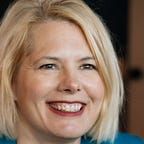Nicholas Kristof in his NYT Opinion “A Confession of Liberal Intolerance” argues that college campuses are hotbeds of discrimination against conservatives and Christianity. Not only is Kristof wrong, his argument is downright dangerous.
Nicholas Kristof fundamentally misread and misrepresented the research that he cited, a study by sociologists Neil Gross and Solon Simmons. Because Kristof provided references and links to the paper he cited, we can read for ourselves what conclusions the study’s authors drew from their survey of American university professors from a range of types of institutions, 2-year colleges, liberal arts colleges, religious institutions, and elite doctoral-granting universities alike.
Kristof linked to an older, unpublished version of the paper, one peer-reviewed study from the paper is readily available to anyone with a JStor account (like NY Public Library users, including presumably Kristof) and large sections of the book that Neil Gross published with Harvard University Press out of this data, Why are Professors Liberal and Why do Conservatives Care, are available online. The study authors could have been contacted for a quote. Kristof consulted none of these sources, relying instead on his shoddy reading of a complex, rich and important study. He missed their main point.
In the words of Neil Gross in the introduction to his book
“Seven years of intensive social scientific research, however have led me to believe that the most common explanation for ‘professorial liberalism’ and the conservative uproar about it are either wrong or incomplete.”
Unfortunately, Kristof just pulled out those same tired and wrongheaded explanations.
The scholarly work presents the data in a fundamentally different way than Kristof used in his column. For example, Gross and Simmons (2009) found 75% of university professors believe to some extent in a “higher power” or in God. Of professors who say that they are religious, fully 19% of them can be classified as “traditionalists,” which would include evangelical Christians (which in Kristof’s NYT op-ed were presented as a maligned minority, not part of the solid 1-in-5 religious professors who are traditionalists found by the survey).
In political beliefs, the authors found that university professors are becoming more moderate over time and the main point of Gross and Simmons’ article is that conservative fears of an atheistic or Marxist professoriate are simply not borne out by the data. Kristof flippantly writes “So it’s easier to find a Marxist in some disciplines than a Republican.” The study authors are more sanguine, noting that the image of uniform liberalism among university professors beliefs is wrong, saying that especially in elite doctoral granting institutions, “That there is more heterogeneity of political opinion among the professoriate” than previous studies found. Almost half, 46.6% classify themselves as moderate. There are more conservatives on campus, 19.2% (again about 1-in-5), than the scary Marxist numbers Kristof quotes out of context.
To be sure, not all is rosy for conservatives on campus. But misread the statistics on how many conservatives and Christians are college professors and you contribute to a much larger war against higher education that has been waged in the U.S. With good intentions for discourse and democracy, Kristof unwittingly gets used in one side of a long debate. He takes research data out of context and relies on really, really sloppy reporting. Kristof’s biggest mistake is trotting out again the false problem of liberal bias. He ends up supporting the arguments that are used to defund higher education.
At a moment when students and their families are bearing more of the costs for college and when access to in-state tuition is vanishing for many people in many states, the crisis we face on campus is not one of political or religious beliefs. It is a crisis in the belief in the power of education to transform students into engaged and informed citizens capable of making ethical choices in the workplace and of sustaining democracy at the ballot box. Kristof’s mischaracterization of campuses as places of “liberal intolerance” does real damage to that vision and instead simplistically echoes the fears of those who would act to dismantle public higher education altogether.
